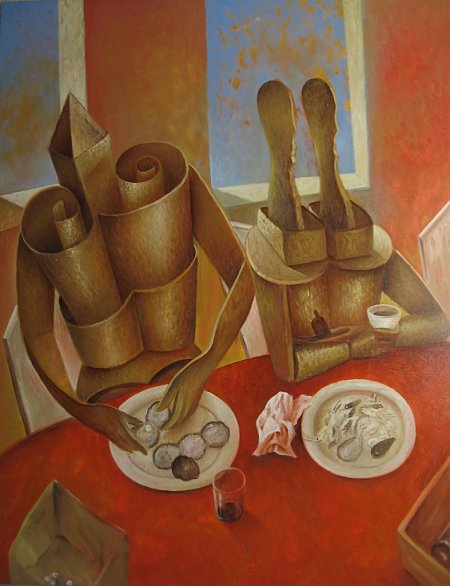
On Nervous Breakdowns
And that’s too bad. For all its promises of woe, the nervous breakdown suggested something affirmative, even joyous, about adulthood: a grandness, an amplitude. Commotion of the right sort. It suggested that life was hectic and abundant and, at long last, worth agonizing over. Put another way: adulthood mattered because there were reasons to have a nervous breakdown, things to value and lose and grieve lavishly. In this sense, the nervous breakdown was an indulgence. It lived in the public mind—vividly, and long after the medical establishment had rejected it—precisely because it could be owned and reveled in. Look at all we have, it seemed to say. Look at what can be taken from us. Certainly, this strange celebration didn’t undo any fundamental fears; the world still teemed with tragic possibilities. But then, the nervous breakdown was never about the genuine disaster: the murdered friend, the fire that ravages the entire house, the test that confirms that the chemo didn’t work and you have, maybe, if you’re lucky, six more weeks. Rather, it was about life’s commonplace stresses, and how those stresses built up in your psyche like plaque in your arteries, until ultimately the whole apparatus gave out. At its core, the nervous breakdown was an assurance that the small stuff mattered. To my boyhood self, it was proof that the world ahead wasn’t trivial.
For surely I feared that it was trivial. Even as I gazed admiringly (and, in time, worriedly) at the grownups in my life, I must have intuited that adulthood was actually a slog—not meaningless, not empty of value, but unspectacular, full of baby steps and undersized moments. I don’t claim any great achievement in this so-called insight; almost always, kids sense the tenor of their future days, just as they sense that far-off thing called sexuality. But my upcoming life must have seemed terribly dreary, planted as it was in the soil of white, suburban, upper-middle-class America, and I can imagine clinging to the hint, any hint, that there was something larger at stake. It probably shouldn’t go unremarked here that the nervous breakdown, in its 1970s incarnation, was mostly a middle- and upper-class concern, a problem for people who, in the greater scheme of things, didn’t have too many other problems. Perhaps that fact undoes my right to make any large-scale pronouncements on the matter. But in the end, my fascination with nervous breakdowns was likely nothing more than an attempt to delay, as most of us do, the mounting suspicion that life is simply not all that dramatic. Such knowledge can’t be put off forever, of course; when we finally receive it, we do so begrudgingly, with one toe kicking mournfully at the dirt. The only alternative is to double one’s resoluteness and stamp one’s feet and insist that there is—there is!—some sort of magnificent ruckus about the world, which is what belief in the nervous breakdown was all about. Even more than that: the nervous breakdown suggested a way to respond to that ruckus, at least theoretically. It may be true, as Melville wrote, that “A laugh’s the wisest, easiest answer to all that’s queer,” but possibly the best answer, the most human answer, is to crack up—to blow a fuse, to go batty, to fall to pieces, to honor our everyday turmoil by collapsing in the face of it. This is what the nervous breakdown offered. Or, it turns out, didn’t.
